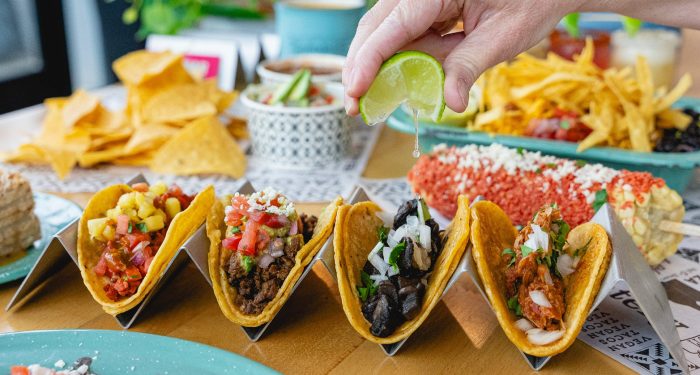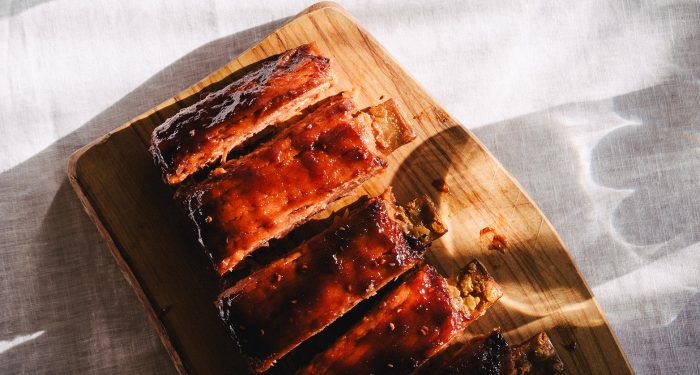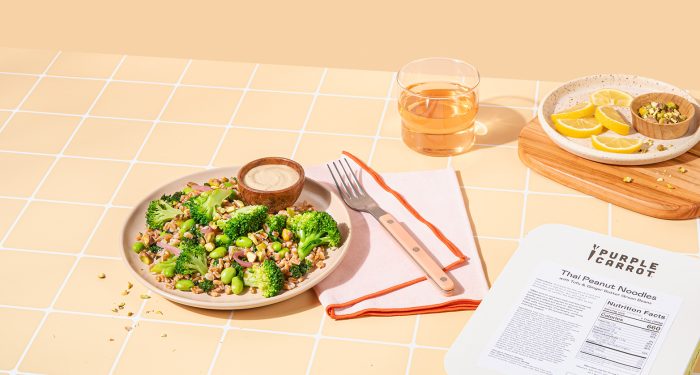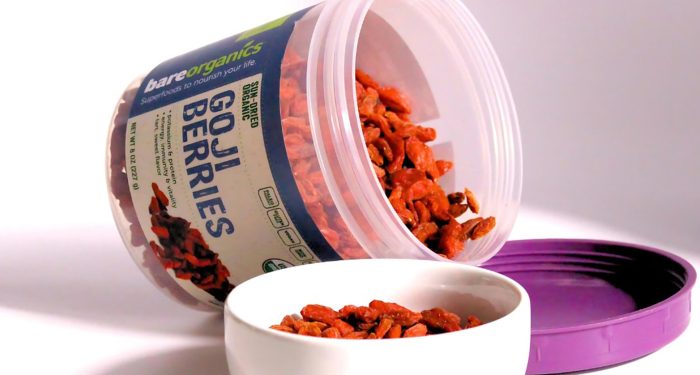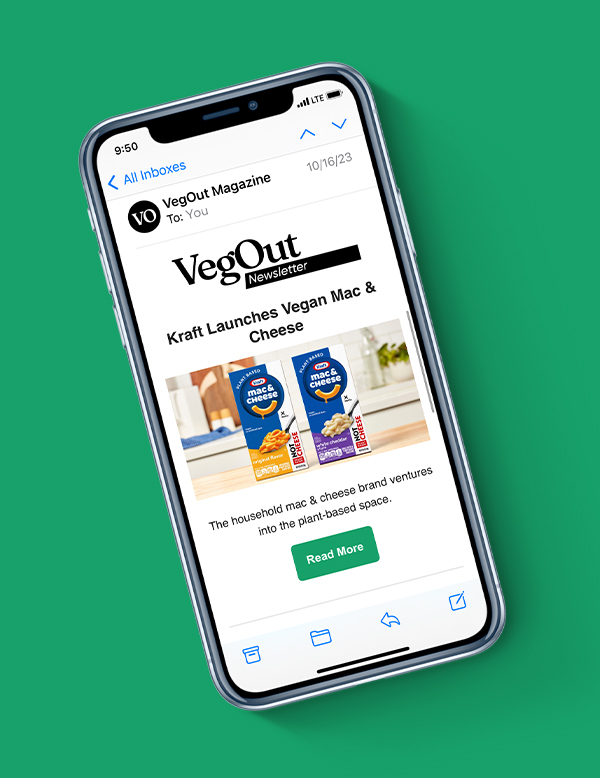We get a lot of questions about cruelty-free nutrition from new plant-based eaters and longtime vegans alike. With the help of our sponsor, Sugarbreak, we’re addressing two trending nutrition topics—bloating and energy on a vegan diet.
Disclosure: Material presented here is intended to serve informational purposes regarding the topics of food, nutrition, and wellness. This content is not intended to substitute for medical advice or diagnosis. If therapeutic attention is warranted, alert your care team.
Q: What can I do to feel less bloated after I eat?
A: While some bloating after meals is totally normal, it can be uncomfortable and frustrating. You can reduce post-meal bloat by making mealtime modifications surrounding what you eat and how you eat it. Food triggers often vary from person to person. While keeping a food-and-symptom journal is a good way to identify your irritants, some common trigger foods may include fried and high-fat options, sugar alcohols, and certain types of fiber.
Generally speaking, when it comes to fiber, take the Goldilocks approach. Too little fiber over a long period of time may lead to tummy distress while the consumption of too much fiber at once may also cause bloating and discomfort. It is a good idea to opt for balanced meals that include both fiber-rich and low-fiber foods.
Beyond the amount of roughage, the type of fiber can also play a role in GI comfort. Highly fermentable carbohydrates, known as FODMAPs, tend to spend a little extra time in your system feeding your gut bacteria. This extended staycation allows these substances more time to swell with water and cause bubbles, which may lead to gas and bloating. Foods rich in FODMAPs include, but are not limited to, apples, garlic, kidney beans, and cashews.
In addition to the type of foods you eat, try to also consider the size and spacing of your meals. Skipping meals may cause overeating later in the day. Large meals, especially if eaten quickly and not chewed well, can lead to stomach pain and bloating. Try slowing down when you eat, chewing your food well, and incorporating mindful eating exercises.
Beyond dietary changes and behavior modifications surrounding meals, Sugarbreak’s line of dietary supplements may also serve as a helpful tool against abdominal bloating. Specifically, the Stabilize supplement may help facilitate digestion and reduce bloating when taken prior to consuming any meal with carbohydrates.
Q: What diet changes can I make to maximize my energy and minimize blood sugar crashes?
A: Beyond good sleep hygiene, your diet has a big impact on energy levels. For stable blood sugar and consistent energy, it is encouraged to opt for regularly spaced, balanced meals that include energizing carbohydrates, plant-based proteins, and satisfying fat sources.
While carbohydrates are the body’s preferred source of energy, when eaten alone, they can metabolize quickly, causing an energy spike followed by a drop. To reduce these peaks and pits, opt for fiber-rich carbohydrates and pair them with protein and fat. These added macronutrients tend to digest slower, therefore leading to a more stable energy aftermath. While consuming “naked” carbs like sports drinks does provide a quick boost of energy and may be helpful during long sweat sessions, this type of carb loading is likely not beneficial to your day-to-day energy goals.
Although important for blood sugar stability and stable energy, not all fiber is created equal. Soluble fiber may help improve glucose metabolism the most. Sugarbreak Reduce contains soluble fiber from fenugreek seed extract which may help further level out blood sugar levels.
In addition to choosing balanced meals and snacks, hydration is important for good energy, and sipping water throughout the day may help keep you from feeling sluggish. When paired with nutritious foods and good water intake, caffeinated beverages can help with daily energy. However, too much caffeine is not a good idea. It might be tempting to grab another sugar-sweetened latte as your energy dips midafternoon, but overdoing the caffeine and sugar can make you feel jittery and lead to a crash. Try to enjoy your caffeinated barista concoctions in moderation and paired with nutritious foods.
This article is brought to you by Sugarbreak. Sugarbreak is a natural, non-prescription line of dietary supplements. When paired with a healthy diet and lifestyle, these products may help reduce bloating after meals and promote healthy blood sugar management. Sugarbreak’s entire lineup of supplements—Resist, Stabilize, Reduce, and their new kids’ products—can be purchased online and found at Target stores nationwide.




